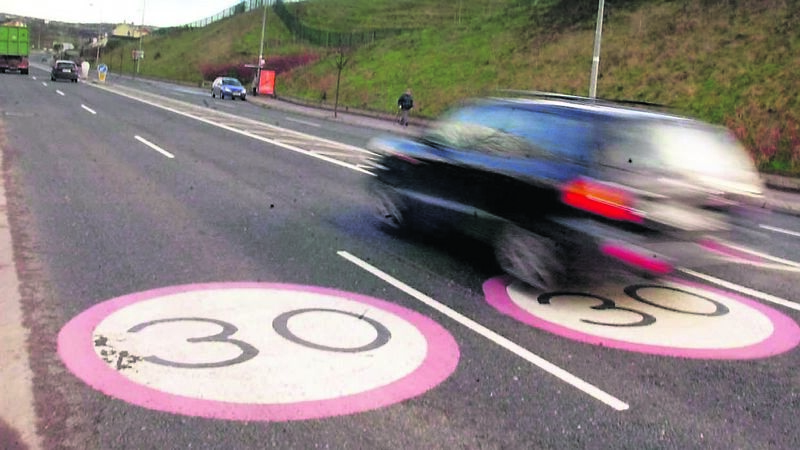New speed limits are on the way - but will motorists be ready?

In fact, the plan when the Road Traffic Bill 2024 was passed earlier this year was for the changes to come into effect by the end of November - that is, today!
However, the date for the start of their implementation has now been put back to February 7, 2025, a spokesperson for the Department of Transport told me this week, after it became “clear that the local authorities would need more time”.
That still only leaves 69 days for local authorities, who are responsible for introducing the changes, to begin the process of implementing the new limits.
These changes will have a huge impact on driving habits.
Signs will need to be changed across the country reflecting these new limits, and I suggest a mass public awareness campaign needs to be launched to notify drivers of these sweeping changes.
The new limits make up the biggest change in motoring laws since January, 2005, when Ireland adopted metric speed limits and around 35,000 signs were replaced and a further 23,000 new ones were erected.
That gives you an indication of the logistical nightmare about to be handed to local authorities - and that’s before we get into the fact that many motorists may find it hard to change their driving habits overnight to keep within the new limits - and the question of whether the guards will have the resources to police them sufficiently.
As anyone on the roads regularly will know, the overall standard of driving and the lack of competence, respect and cognisance of current speed limits among many drivers is very poor - far too many ignore the limits anyway.
What are the chances of them suddenly becoming upstanding members of society the day these new limits are brought in?
It is up to each local authority to decide which of their roads will be affected by these new limits.
A Department of Transport spokesperson said: “Following the passage of the 2024 Act, local authorities have been reviewing the speed limits on local roads in their areas in preparation for the change.
“An implementation group has brought together those involved to oversee the process, including ensuring that new signage can be procured and installed in time for the change.
“The Local Government Management Agency has held workshops with local authorities around the country to explain the changes and address any queries arising.”
Both Cork City Council and Cork County Council told me the process of implementation of the new limits has begun, with public consultations completed. Both will aim to implement phase one of the process - reducing speeds on local/rural roads - on February 7, 2025.
The city council has chosen two local/rural roads to which the new limits will not apply.
“The necessary signage and poles have been procured centrally by the Department of Transport and been distributed to Cork City Council. It is estimated that Cork City Council need to install, replace, or update approximately 86 poles.”
I asked about cost, and the spokesperson replied: “The signage and poles were procured centrally by the Department of Transport, and it is intended to carry out the installation of the signage and poles by direct labour.”
A spokesperson for Cork County Council said “a small number of local roads are proposed to be retained at 80kmph. These are due to go before Full Council for ratification by elected members shortly.”
The county council estimates it will require around 5,000 poles and 9,300 signs.
I asked the Department of Transport if there could be a changeover period to allow drivers to get used to the new limits.
“As part of the implementation process, there will be public information in advance of the change to alert people to the fact that limits will be changing,” they said.
The aim of these new speed limits is clearly to make our roads safer, and reduce the number of serious accidents and fatalities.
Although the 162 deaths on our roads so far this year is slightly down on the total at this stage last year, the figures have been far too high in recent times.
Introducing the Road Traffic Bill 2024 earlier this year, then junior minister at the Department of Transport, Jack Chambers, said: “We have witnessed a very disturbing upward trend in road deaths in the last few years.
“This new legislation seeks to bring systemic improvements to road safety, including reductions in speed limits, reform of penalty points, and mandatory drug testing at the scene of serious collisions.”
Some politicians have also questioned whether the new limits will be too low.
In a recent debate in Fingal County Council, Fine Gael councillor Ted Leddy said: “If a rural road is going to be 60km/h and an urban road is going to be 30 km/h, that’s a very big drop. There are several places where I imagine a happy medium is more suitable, like a 40-50km/h limit.”
Expect this issue to be the subject of fierce debate in the weeks ahead.







 App?
App?




